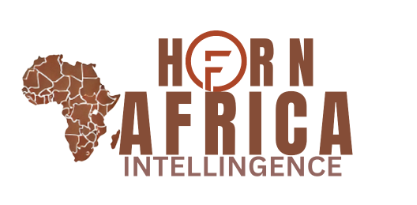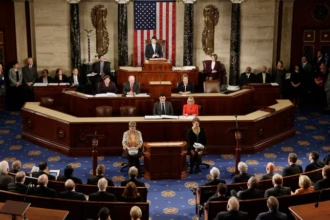Kenyan political heavyweight Raila Odinga is facing mounting pressure to intervene in the detention of Ugandan opposition politician Kizza Besigye, who has been behind bars for three months. However, Odinga finds himself in a precarious position as he seeks to maintain his diplomatic ties with Kenyan President William Ruto and Ugandan President Yoweri Museveni. The situation presents a complex challenge for the veteran politician, as both domestic and international rights groups intensify their calls for action against what they describe as the militarisation of justice in Uganda.
Rights organisations and democracy advocates have strongly condemned the Ugandan government’s ongoing crackdown on opposition figures. In a joint statement, multiple rights groups decried the increasing repression ahead of Uganda’s 2026 general elections. “We condemn the militarisation of justice in Uganda and the escalating government repression ahead of the 2026 general elections. We call for the immediate release of Kizza Besigye, Hajj Obeid Lutale, Eron Kiiza, and others unlawfully detained,” the statement read.
The organisations also took issue with the recent conviction of Ugandan lawyer Eron Kiiza by Uganda’s General Court Martial, where he was sentenced to nine months in prison for “contempt of court.” According to the rights groups, this ruling represents a blatant attack on legal professionals who advocate for government critics. They argue that such actions are meant to instill fear among those defending opposition voices and signal a troubling trend of judicial militarisation in Uganda.
Odinga, as a seasoned politician and statesman, understands the delicate nature of international relations, particularly in East Africa. His political influence extends beyond Kenya, making him a crucial figure in regional affairs. However, his involvement in Ugandan domestic issues risks straining his relationship with President Museveni, a long-serving leader known for his tight grip on power.
At the same time, Odinga must also consider his standing with Kenyan President William Ruto. While the two have been political rivals in the past, maintaining a working relationship with the current Kenyan administration remains important for Odinga’s influence in national politics. Any misstep in his handling of the Besigye affair could provide political ammunition for his critics and complicate his role in Kenya’s political landscape.
The situation in Uganda is emblematic of a larger pattern of repression that has characterised Museveni’s rule. For years, opposition figures like Besigye and Robert Kyagulanyi, better known as Bobi Wine, have faced arrests, intimidation, and legal hurdles designed to stifle dissent. As Uganda approaches the 2026 elections, concerns are growing over the government’s increasing use of security forces and judicial mechanisms to suppress opposition voices.
Besigye, a veteran opposition leader and former personal physician to Museveni, has been a persistent thorn in the side of the Ugandan government. His repeated arrests and detentions highlight the Ugandan state’s intolerance for political dissent. Similarly, the jailing of lawyer Eron Kiiza has sent shockwaves through Uganda’s legal fraternity, as it signals that even those who defend opposition figures are not safe from government reprisal.
The calls for Besigye’s release are not limited to regional activists. International human rights organisations, diplomatic missions, and civil society groups have expressed deep concern over the Ugandan government’s tactics. The increasing reliance on military courts to prosecute civilians, particularly opposition figures and their allies, has been widely condemned as a violation of fundamental human rights and due process.
In the face of mounting pressure, some argue that Odinga should leverage his stature as a respected African statesman to advocate for democratic values. Others contend that any direct involvement from Odinga could be counterproductive, as it might be perceived as foreign interference in Uganda’s internal affairs.
Odinga’s dilemma underscores the complexities of regional diplomacy in East Africa. While his advocacy for democratic governance and human rights remains undisputed, the realities of political alliances and state relations require careful navigation. Any statement or action he takes must be calculated to avoid diplomatic fallout while still upholding his commitment to democratic principles.
As Uganda continues its crackdown on opposition figures and legal professionals, the role of regional leaders like Odinga in addressing these human rights violations remains uncertain. Whether he chooses to speak out or adopt a more cautious approach, the unfolding events in Uganda will likely have lasting implications for East Africa’s political landscape.













